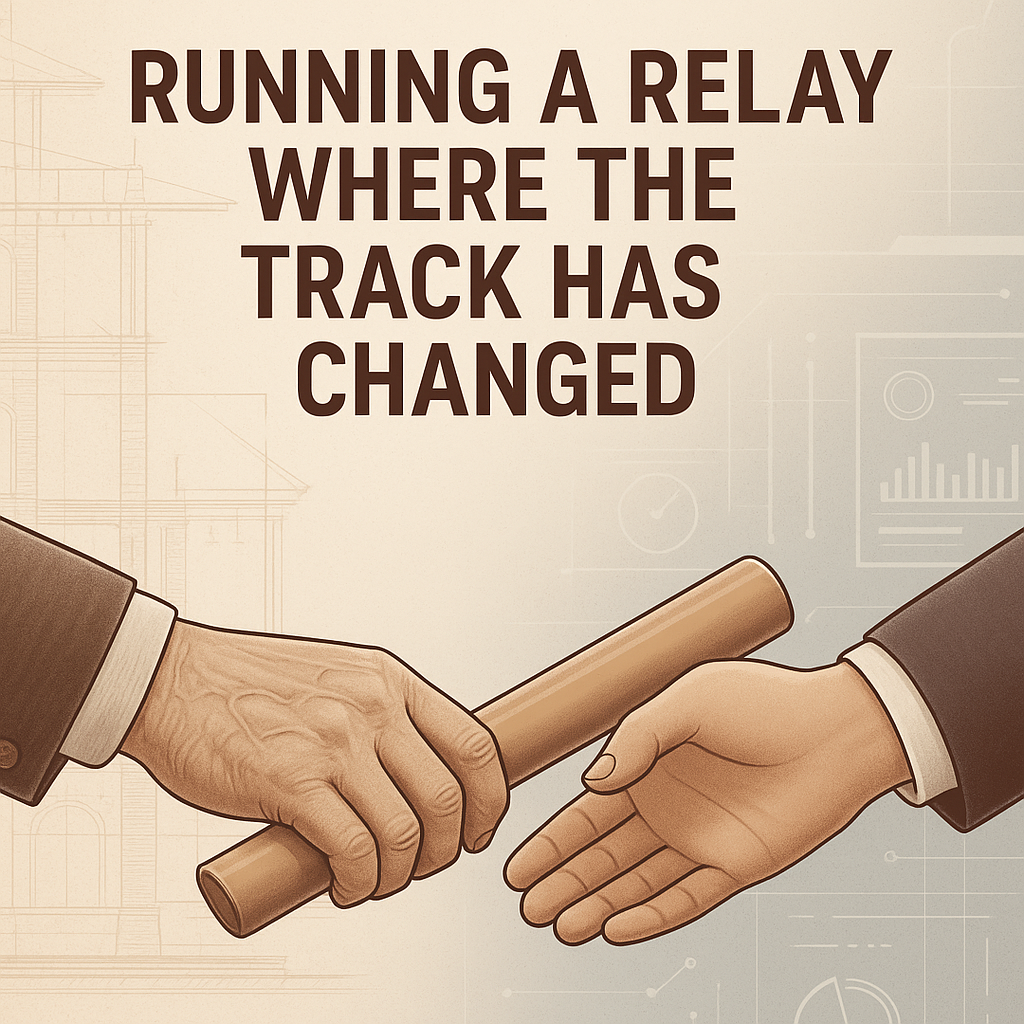“You’re the luckiest guy, Raja.”
A friend said that to me one quiet evening over chai.
His tone wasn’t envious, it was genuine, maybe even admiring.
“You’ve got a legacy. A business platform. A name that’s already built. Most people spend their whole lives trying to create something like that.”
I heard him. I understood what he meant.
But I also felt the weight behind those words—the part no one sees.
I didn’t answer immediately. Just smiled, gently.
Not out of pride, but out of knowing.
Knowing that what looks like a head start…
Often comes with expectations you never asked for…but are now entrusted to carry, gracefully.
So I told him, softly but truthfully:
“Yes, I have a legacy.
But the legacy I’ve inherited… and the one I want to build—
They’re not the same.”
He tilted his head slightly—not in disagreement, just in curiosity.
So I leaned in.
“From the outside, it looks seamless.
One generation passes the baton to the next.
But on the inside?
It feels like I’m running a relay where the track has changed,
the baton is heavier,
and the finish line isn’t even in the same place anymore.”

He fell quiet.That kind of quiet where reflection settles in.
When Strategy Meets Sentiment
In a legacy business, you don’t just inherit processes or profits.
You inherit a philosophy, a rhythm, a way of life.
What’s rarely spoken about is how hard it is to challenge that.
Because legacy doesn’t come with a manual—it comes with unspoken expectations.
“Do it the way we did it.”
“Don’t fix what worked.”
“Follow the system.”
And here’s the hard truth:
The tension doesn’t end at the boardroom.
It starts there—and follows you all the way to the dinner table.
Because when business and blood co-exist, you don’t just navigate strategy—you navigate emotion.
A disagreement at desk, can turn into silence at dinner table.
You’re not just questioning a method—
You’re touching someone’s pride.
Their memories.
Their version of what worked, what succeeded, what mattered.
A Story in Three Generations of Phones
Let me share something that captures this shift.
My grandfather believed in letters.
Handwritten. Thoughtful. Permanent.
He used to say, “Ink carries intention.”
He had a trunk full of them—letters of commitment, faith, and accountability.
My father was a landline man.
“You know where someone is if they pick up,” he’d tell me.
“That’s real accountability.
No ‘Hello-hello-can-you-hear-me’ drama. Just direct, present, and clear.”
And today?
Today, my clients prefer WhatsApps/emails.
Not because they don’t want to talk—
But because they want everything documented.
Every commitment. Every nuance. Every word—traceable.
And here’s the irony:
My father proudly says, “We did business on verbal trust—and defaults were rare.”
But today?
You hesitate to move ahead without a signed agreement—even if it’s with your own sibling.
That’s not betrayal.
That’s the evolution of trust.
Rewriting Without Disrespect
So what do you do when the world you’re living in no longer matches the world that built your legacy?
You don’t discard the past.
And you don’t blindly obey it either.
You reinterpret it.
You keep the soul—but adapt the skin.
You hold onto the values, but upgrade the systems.
You modernize the delivery.
You digitize the handshake.
Legacy isn’t about doing things the way they were.
It’s about doing things the way they’re meant to be now—without losing the essence.
That’s the tightrope:
You’re rebuilding a structure…while still standing on it.
And believe me, that’s far harder than starting from scratch.
To My Fellow Legacy Holders
If you’ve inherited something—a business, a reputation, a philosophy—
And you’re navigating the constant push and pull between honouring the old and embracing the new…
I see you.
You’re not just continuing a legacy.
You’re redefining it, without letting it lose its identity.
You’re not being disrespectful when you question what was.
You’re being responsible—to ensure it still makes sense today.
This isn’t just about succession.
It’s about stewardship.
You’re not preserving a statue.
You’re nurturing a living organism—keeping it relevant, credible, and deeply human.
And if that’s your story too—
You have my utmost respect.
Leave a Reply